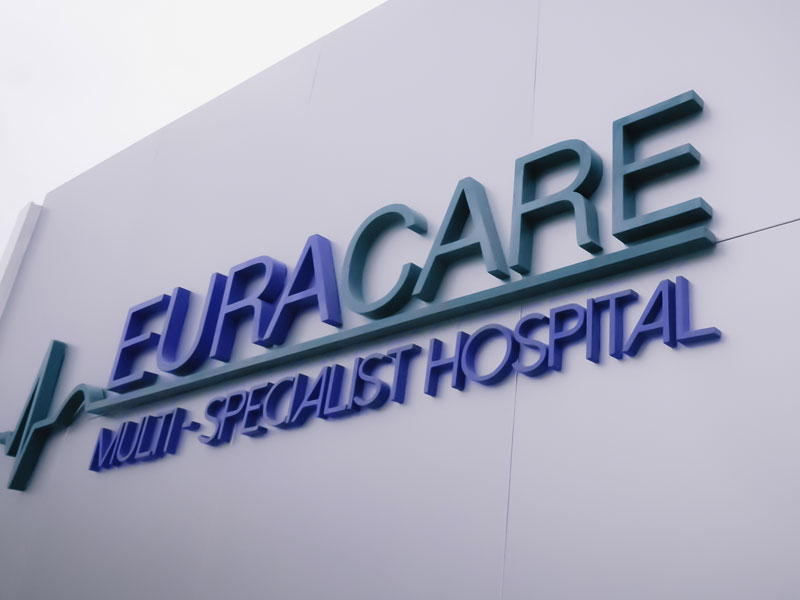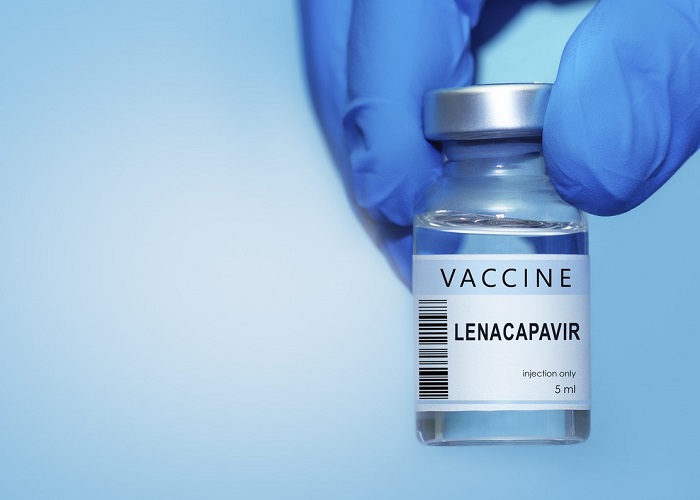Health
Why You Need to Move More in Your Day

Thrombosis, more commonly known as blood clotting, is a dangerous and life-threatening condition. Globally, one in four people die from conditions caused by thrombosis, making it a leading cause of death worldwide.
Concerningly, with technological advances and shifting work patterns, many of us lead increasingly sedentary lifestyles, increasing our risk of thrombosis. Do you sit at a desk for work or enjoy sitting watching TV in the evening? You could be at high risk.
This is because when we sit for long periods of time, it enables pooling of blood in the veins, leading to clot formation, known as deep vein thrombosis (DVT). These clots can then break off and travel to other parts of the body, causing harmful effects. For example, if a clot travels to the lungs it leads to a potentially deadly condition called pulmonary embolism (PE).
In light of this risk, World Thrombosis Day’s (WTD) theme this year is “Move Against Thrombosis”. WTD aims to raise awareness about the risks of thrombosis and encourage and empower people to take preventative action against it.
Signs you’re not moving enough
So how can you know if you are not moving enough and subsequently are at risk of thrombosis?
Globally, one in four adults do not meet recommended levels of physical activity. The goal of 10,000 steps is widely circulated, but even taking 7,000 steps a day can have a statistically significant positive impact on health, says Dr Helen Okoye, a leading thrombosis specialist who is part of the WTD campaign steering committee. If you’re moving less than this, it is important to walk more! Steps can be tracked and monitored on most smartphones and watches.
But crucially, even when living a generally active life, time spent sedentary poses a risk to health. WHO states that we should limit the amount of time spent being sedentary. Replacing sedentary time with physical activity of any intensity (including light intensity) provides health benefits.
To monitor this, sitting down for too long has physical effects on the body that can also be used as tell-tale signals to move more. If you spend long periods of time sitting in front of a screen, you may notice some of the following symptoms:
-
Difficulty sleeping
-
Low energy
-
Poor posture
-
Weight gain
-
Lack of focus
-
Constipation
-
Tight hips and hamstrings
-
Stiff neck and shoulders
-
Back pain
If you’re experiencing any of these symptoms, it is vital to take action to increase your movement. According to Dr Okoye, we all need to make a conscious effort to build movement into our everyday lives. “Make it a daily habit to move more,” says Dr Okoye. “The less you keep your body in a static position throughout the day, the better your chances for living a healthy life.”
Reducing your risk of thrombosis does not require a drastic life overhaul; a few simple changes can increase your chances of a healthy life.
Five ways to move more
Here are five easy ways to break up your time sitting still. Get your friends involved and try to make one or all of these a regular habit in your day-to-day life.
-
Take a break, says Dr Okoye. “Schedule a break in your day. Whether that’s a few minutes outside, a chat with a colleague, or a walk to get a snack or coffee, taking the time to get up and move will reduce your risk of thrombosis. It’s all the little movements we do in the day that matter. The trick is to build movement into every part of your life,” she advises.
-
Walk more. To reach that 7,000 steps goal, there are many ways to implement subtle changes and increase the amount you walk. These include switching to walking meetings and phone calls, taking the stairs, parking a block away from a shop you are going to, and scheduling a 15 – 30 minute walk every day.
-
Stretch more. Why not multi-task to make good use of standing breaks or time watching TV? Exercising or stretching, even for a short time, is a simple healthy habit to introduce. There are brief five-minute yoga or stretching videos on YouTube that can be an effective way to release stress and muscle tension from your body. Or you could set yourself a challenge; for example, to do five lunges every hour.
-
Dance it out. Get some colleagues or friends together to shake it out and have a dance break! Maybe a silly one, but definitely a good way to have a laugh, boost positive energy and reduce the risk of thrombosis.
-
Stand more. Take a five-minute standing break for every hour that you sit down, advises Dr Okoye. “During your work week, try to stay in motion whenever possible. Stand up while you’re talking on the phone or if a colleague stops at your desk for a chat, and go for a walk during lunchtime,” she concludes.
By making these changes a daily habit, not only will you reduce your chances of thrombosis, but it can also have a positive impact on your mental and physical health. Movement releases endorphins, which boost energy levels, and serotonin, which uplifts mood.
Health
Chimamanda: Euracare Raises Concerns Over MDCN Investigation Panel Process

By Aduragbemi Omiyale
A Lagos-based healthcare facility currently in the limelight, Euracare Multi-Specialist Hospital, has faulted the outcome of the investigation panel of the Medical and Dental Council of Nigeria (MDCN) on the death of a 21-month-old Nkanu Nnamdi Esege, son of a renowned author, Chimamanda Ngozi Adichie.
The toddler died some weeks ago after an alleged overdose of sedative propofol, with the family alleging medical negligence.
This week, the panel suspended the two doctors of Euracare, Dr Tosin Majekodunmi and Dr Titus Ogundare.
Reacting to the development in a statement, the hospital claimed it observed “a number of serious concerns that have arisen in the course of these proceedings.”
In the statement made available to Business Post, Euracare emphasised that it vouches for the “professionalism and integrity of our clinical team,” pointing out that “certain established processes and protocols have not been followed in the manner required” during the probe.
While it empathised “with the family of Master Nkanu Nnamdi Esege” over the unfortunate incident, the healthcare firm said there was a “serious breach” by the investigators that “cannot go unaddressed.”
It identified this breach as the disclosure of “matters covered by patient and institutional confidentiality” outside the appropriate channels.
Below is the full statement from Euracare;
Our attention has been drawn to widespread media reports concerning the interim suspension orders and other findings issued by the Medical and Dental Practitioners Investigation Panel against thirteen doctors, two of whom are our clinical staff members in connection with the ongoing proceedings relating to the death of Master Nkanu Nnamdi Esege. We remain fully committed to cooperating with all relevant regulatory and judicial authorities in the course of their inquiries.
We however wish to place on record our confidence in the professionalism and integrity of our clinical team. Dr. Tosin Majekodunmi and Dr. Titus Ogundare who are experienced professionals whose records of service to patients in Nigeria span many years. Both doctors have, in their respective careers, contributed meaningfully to the delivery of quality healthcare to Nigerian patients at a standard comparable to what is obtainable in the world’s leading medical facilities.
In the interest of transparency, since the commencement of this matter, we have conducted a thorough internal review of the clinical events in question, in line with our clinical governance standards and best practices. We have actively demonstrated our commitment to transparency and will continue to engage openly with all inquiries directed at us.
We are also compelled to draw attention to a number of serious concerns that have arisen in the course of these proceedings. It is our position that certain established processes and protocols have not been followed in the manner required. We have further noted, with deep concern, that matters covered by patient and institutional confidentiality appear to have been disclosed outside the appropriate channels, and we consider this a serious breach that cannot go unaddressed.
We wish to state that we stand by the principles of equality, fairness, and good governance. Every party in this matter, including our institution and our staff, is entitled to a process that is conducted with rigour, impartiality, and respect for the rules that govern it. We will be raising these concerns through the appropriate legal and regulatory channels.
We continue to empathize with the family of Master Nkanu Nnamdi Esege. The loss of a child is a grief without measure, and we carry that awareness in everything we say and do in relation to this matter.
Health
Chimamanda: MDCN Suspends Euracare Medical Director, Anesthesiologist

By Adedapo Adesanya
The Medical and Dental Practitioners Investigation Panel of the Medical and Dental Council of Nigeria (MDCN) has invoked its order of suspension against the Medical Director of Euracare Multi-Specialist Hospital, Dr Tosin Majekodunmi, and two others, after establishing a prima facie case of medical negligence against them in the management of the late Nkanu Adichie-Esege.
Nkanu, the son of renowned Nigerian author, Chimamanda Ngozi Adichie and Dr Ivara Esege, died on January 7, 2026, after receiving care at Atlantis Hospital and undergoing medical procedures at Euracare Multi-Specialist Hospital in Lagos. He was 21 months old.
Apart from the Medical Director at Euracare, the panel also suspended the anesthesiologist at the same hospital, Dr Titus Ogundare, as well as the Chief Medical Officer at Atlantis Pediatric Hospital, Dr Atinuke Uwajeh.
The trio were suspended from medical practice in Nigeria pending the determination of their case by the Medical and Dental Practitioners Disciplinary Tribunal.
A statement signed by the committee’s secretary, Dr Enejo Abdu, also disclosed it was determining if there is a prima facie case of professional misconduct against 10 other doctors.
These are Dr Adeseye Akinsete, Dr Chidinma Ohagwu, Dr Anthony Ajeh, Dr Amarachi Bayo, and Dr Nkechi Peji. Others are Dr Olaoye Oludare, Dr Agaja Oyinkansola, Dr Patricia Akintan, Dr Babatunde Bamgboye, and Dr Raji Faidat.
The panel, which also cleared eight other doctors, reached these decisions after considering the complaint against all 21 doctors and reviewing their counter-affidavits, including their oral depositions on oath.
It concluded its investigation at its 25th session held at Excel Hotel & Resort in Abuja on February 17 and 18, 2026.
The 21-month-old child, Nkanu Adichie-Esege, was initially admitted to Atlantis Hospital in Lagos for what was described as a worsening but initially mild illness.
While arrangements were being made to transfer him to Johns Hopkins Hospital in the United States, Atlantis referred him to Euracare for pre-flight diagnostic procedures, including an MRI, lumbar puncture, and insertion of a central line.
However, the child passed following the procedures.
His parents have alleged medical negligence and professional misconduct in connection with his death.
In a legal notice dated January 10, 2026, issued by the law firm led by Kemi Pinheiro (SAN), Ms Adichie and her husband accused Euracare, its anesthesiologist, and other attending medical personnel of breaching the duty of care owed to their son.
The notice stated that the child, born on March 25, 2024, was referred to Euracare on January 6, 2026, for diagnostic and preparatory procedures ahead of an emergency medical evacuation to the United States, where a specialist team was reportedly on standby.
The procedures reportedly included: Echocardiogram, Brain MRI, and insertion of a peripherally inserted central catheter.
Lumbar puncture, Intravenous sedation using propofol was administered.
The parents alleged that the child developed sudden and severe complications while being transported to the cardiac catheterisation laboratory after the MRI.
The development has raised worries and questions about the country’s healthcare.
Health
Nigeria to Receive Breakthrough HIV Prevention Drug Lenacapavir—NACA

By Adedapo Adesanya
The National Agency for the Control of AIDS (NACA) has announced that Nigeria would take delivery of Lenacapavir, a groundbreaking human immunodeficiency virus (HIV) prevention drug that has shown 100 per cent effectiveness in preventing the viral infection in clinical trials.
A short statement released by the Head of Public Relations for NACA, Mrs Toyin Aderibigbe, on Monday said the agency had secured regulatory approval from the National Agency for Food and Drug Administration and Control (NAFDAC).
HIV over time causes acquired immunodeficiency syndrome (AIDs), a condition in which progressive failure of the immune system allows life-threatening opportunistic infections and cancers to thrive.
Lenacapavir is an injectable treatment administered twice a year, making it a more convenient alternative to daily oral prevention drugs.
The drug is expected to be available in Nigeria and 119 other low- and middle-income countries at an affordable price of $40 per person annually, thanks to voluntary licensing agreements with generic manufacturers.
“The Government of Nigeria is advancing preparations for the introduction and rollout of Lenacapavir as Pre-Exposure Prophylaxis (PrEP).
“This is part of the government’s commitment to strengthen HIV prevention and accelerate progress toward epidemic control,” the statement read.
NACA listed some significant milestones achieved, including completion of landscape and readiness assessments across ten states: Akwa Ibom, Anambra, Benue, Cross River, Ebonyi, FCT, Gombe, Kano, Kwara, and Lagos, alongside regulatory approval by NAFDAC.
“The commodities are expected in the country in March 2026,” NACA noted.
Nigeria has approximately 1.9 million people living with HIV, with a national prevalence of 1.3% among adults aged 15-49 years.
The country recorded 74,000 new HIV infections and 51,000 AIDS-related deaths in 2021.
The South-South zone has the highest HIV prevalence at 3.1%, while women aged 15-49 years are more than twice as likely to be living with HIV as men.
Daily oral PrEP has been available in Nigeria since 2016, but uptake varies. Adherence issues like pill fatigue, stigma, limited awareness, and inconsistent access have hindered wider use.
Newer PrEP options include injections that last two or six months, providing an alternative for those who prefer less frequent dosing and may overcome many barriers of daily oral use.
-

 Feature/OPED6 years ago
Feature/OPED6 years agoDavos was Different this year
-
Travel/Tourism10 years ago
Lagos Seals Western Lodge Hotel In Ikorodu
-

 Showbiz3 years ago
Showbiz3 years agoEstranged Lover Releases Videos of Empress Njamah Bathing
-

 Banking8 years ago
Banking8 years agoSort Codes of GTBank Branches in Nigeria
-

 Economy3 years ago
Economy3 years agoSubsidy Removal: CNG at N130 Per Litre Cheaper Than Petrol—IPMAN
-

 Banking3 years ago
Banking3 years agoSort Codes of UBA Branches in Nigeria
-

 Banking3 years ago
Banking3 years agoFirst Bank Announces Planned Downtime
-

 Sports3 years ago
Sports3 years agoHighest Paid Nigerian Footballer – How Much Do Nigerian Footballers Earn












